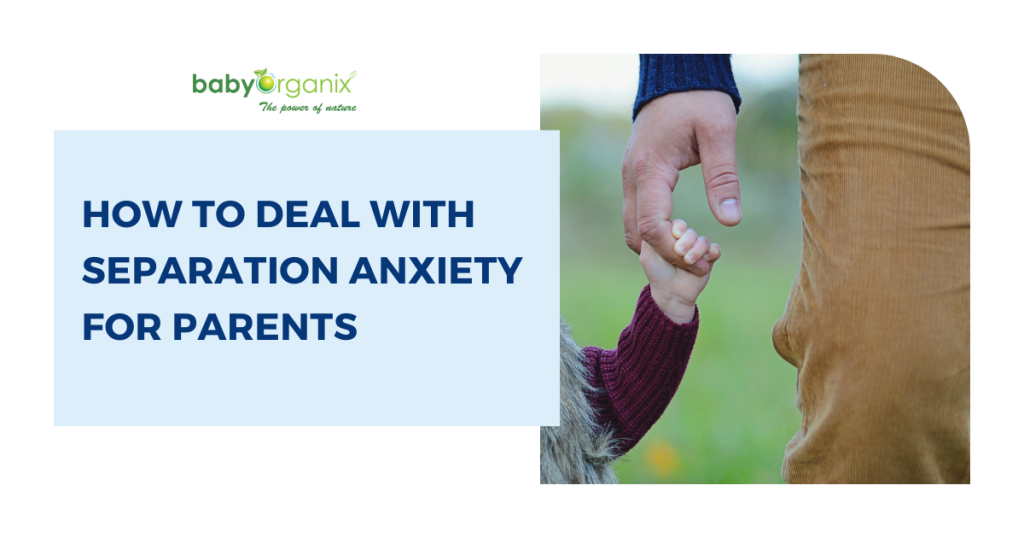Latest News
How to Deal With Separation Anxiety for Parents
What is Separation Anxiety?
Do you feel like your kid sticks on you like glue all the time? Are you experiencing burnout not just because of work but also dealing with your kid constantly? There are times you just feel like you couldn’t catch a break at all! This means your kid may be going through separation anxiety.
In this post, BabyOrganix will be going into the causes of this as well as some tips to help ease some of the anxiety your kids feel when they are separated from you. So parents, do not worry much, all you need to have is consistency!
When Separation Anxiety Developed?
Separation anxiety starts to develop in infancy when babies have developed awareness that people and objects still exist even if they can’t be detected by their senses such as sight or sound. One thing for you to remember is that separation anxiety is a phase that almost all children will go through. This is a normal part of the emotional development of your infant or toddler.
Separation anxiety differs for each baby but on average, most may start around the 6-month mark. Fortunately, they do outgrow their separation anxiety, but it may take until about 2 years of age for it to happen.
Signs of Separation Anxiety:
- Clinging to the parents or caregiver especially in a new environment
- Crying when you leave the room
- Fear for unfamiliar faces or strangers
- They require you to be nearby so they can fall asleep
- Fusses and cry the instant you hand them to someone new
- Wake up crying during the night
How to Manage Separation Anxiety at Different Stages
- 6 – 12 Months Old
Cuddle the Baby Regularly
Provide the feeling of security by offering them lots of physical contacts and closeness. You can even keep them close or within their sight when you’re doing house chores. Have more distraction free time with the baby throughout the day.
Practice Brief Separation by Playing Games
Return right after a brief separation when you leave them in a safe room or environment. When you’re away, you can try talking or singing to let them know you’re there even when not in sight. Playing the game “peekaboo” or hide and seek can help to instill the perception of leave and return to the babies. - 12 Months to 2 Plus Years Old
Foster Trust in Their Independence
As they are growing, you should start to trust in their independence as much as possible. Allow them to roam, crawl in the room while maintaining supervision. This will give them the feeling that they are safe when exploring the place.
Introduce Them to New People
Be patient and give them time to be familiar with new people, be it relatives, friends or even a caregiver. It is recommended for you to introduce new faces at home first where the baby feels most comfortable.
In short, separation anxiety is a sign of normal child development although it can be challenging and tiring. At the same time, it is a sign of secure attachment. Consistency of practicing these tips will help you to ease separation anxiety between you and baby too.
